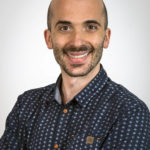LIFE PlanUp report on good practices in energy and climate governance
A guidebook on public participation in the EU national energy and climate plans

Strong climate and energy governance arrangements, involving cities, civil society organizations, the public and other stakeholders, have the power to mobilize all actors and resources, foster public support and ownership, and ensure that responsibilities and benefits are shared equitably.
The LIFE PlanUp project report presents good practices in the form of case studies from seven EU Member States – the France, Netherlands, Sweden, Luxembourg, Ireland, Germany and Estonia – as well as from outside Europe, by focusing on Canada and the US State of California. In these examples, a multilevel climate and energy dialogue compliant with the EU regulation governing the EU national energy and climate plans (NECPs) (i.e. Article 11 of the Energy Union and Climate Action Governance Regulation) has been successfully developed and implemented in various ways.
The objective of the report is to highlight how these good practices in energy and climate governance have managed to effectively involve cities, civil society organizations, the public and other stakeholders in multilevel climate and energy dialogues. Furthermore, the report informs national policymakers on how to involve these local actors and citizens in their NECPs, by providing detailed insight into different proven participatory methods. The nine good practices featured in the LIFE PlanUp report are listed below:
- France: National Debate for 2015 Law on the Energy Transition for Green Growth
- Netherlands: Stakeholder roundtables for national climate agreement
- Sweden: Parliamentary committee with stakeholders for Long-Term Climate Policy Framework 2017
- Luxembourg: Climate Pact between State and municipalities
- Ireland: The National Dialogue on Climate Action
- Germany: National Dialogue for 2050 Climate Action Plan
- Estonia: Stakeholder working groups for 2050 General Principles of Climate Policy
- Canada: Pan-Canadian Framework on Clean Growth and Climate Change
- California: Stakeholder inclusion in Global Warming Solutions Act
Drawing from the experiences of the good practices in energy and climate governance analysed, the LIFE PlanUp report concludes with 10 takeaways and recommendations for national policymakers in EU countries on how to develop and implement a multilevel climate and energy dialogue in their NECPs. The report provides in particular guidance on collaborating with cities and regions in this regard, calling on EU countries to entrust local and regional authorities with a key role in a governance framework. The national level should not only make their cities and regions a strategic partner, but also provide them with the necessary means to carry out their role effectively:
- Support cities’ and regions’ efforts with critical technical and financial assistance;
- Remove any barriers preventing their effective action (e.g. on investments, regulation, administrative rules)
- Leave them with the flexibility to design and implement suitable climate and energy measures
About LIFE PlanUp
Engaging national, regional and local partners, the LIFE PlanUp project focuses on five EU Member States: Spain, Italy, Poland, Romania and Hungary. PlanUp closely tracks the development of each country’s NECP under the framework of the EU Energy Union Governance regulation, to ensure that their NECPs are strong and inclusive tools to support the decarbonisation of Europe. PlanUp promotes good practices across three sectors (transport, buildings and agriculture) and fosters a multi-level dialogue on low-carbon policymaking between local authorities, civil society organisations, academia and national policymakers.
Energy Cities is responsible for coordinating the governance stream in the project, by facilitating the establishment of a multi-layer governance framework in the five focus countries. This will be achieved notably by improving the coordination and cooperation between local authorities, civil society organisations and national policymakers in the development and implementation of NECPs.

